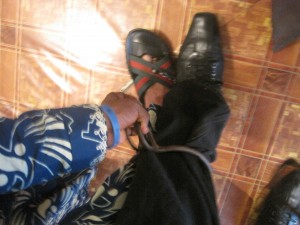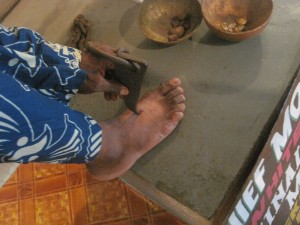“In many cultures of the world, women damage themselves in order to appeal to men (which translates to “finding a mate”). And parents damage their girls to make them marriageable. In American society, much of this “mutilation” is psychological (though plenty is physical) but no less painful or harmful. However, plenty of people are writing about all this. I don’t feel enough are writing about female genital cutting.”
This piece from fantasy and speculative fiction writer Nnedi Okorafor has made my morning not just because of the way she successfully defends her genre from the many ignorant attacks it has received from sections of the public, but the depth and fluidness of her thoughts. Listen:
“First of all, I speak about what I choose to speak about. Let’s see you try to stop me. Secondly, if writers only wrote about what they’d experienced, then few people would write about wizards and unicorns. Thirdly, let’s be honest here, you can lace the practice of female genital cutting with whatever elaborate stories, myths and traditions you want. What it all boils down to (and I believe the creators of this practice KNEW this even a thousand years ago) is the removal of a woman’s ability to properly enjoy the act of sex. Again, this is about the control and suppression of women. And I do NOT have to be right there between a little helpless girl’s legs to know this to be true.”
Read the rest of the piece here and see why the award-winning writer Nnedi is one of the bright futures of African literature.

